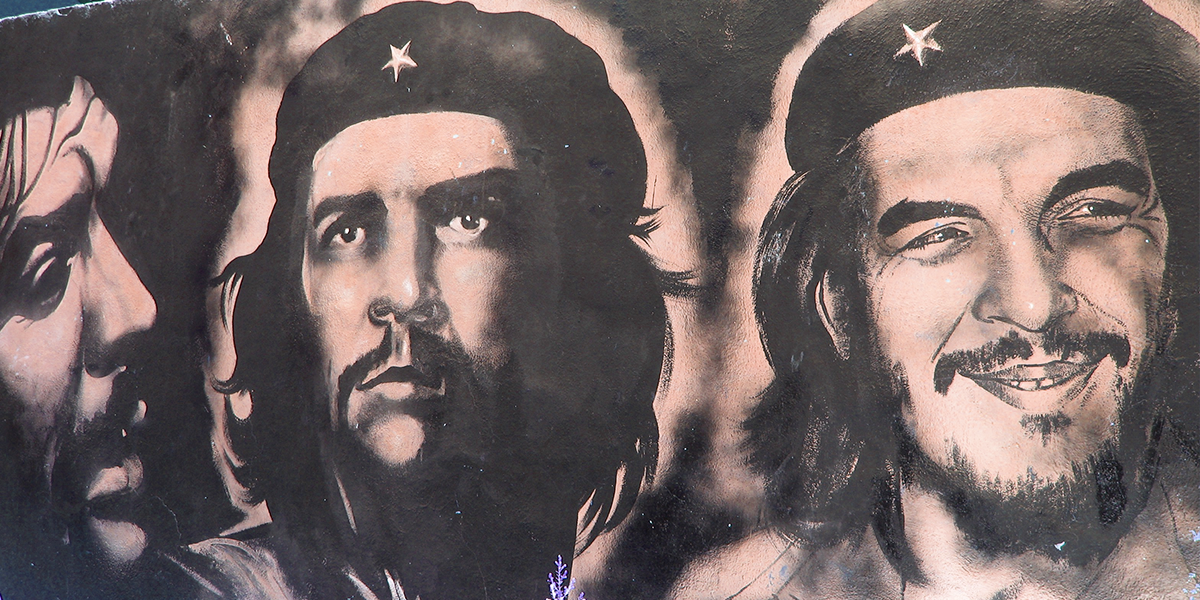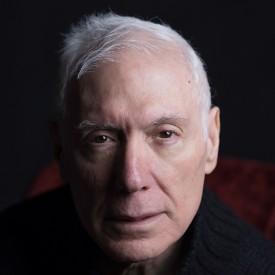The memory is from 14 years ago, but it stings like it was yesterday.
“I think he’s a famous old actor,” I said, during a game I play with friends where you have to get your team to say a name you’re reading on a slip of paper that they can’t see.
“Humphrey Bogart!” one person yelled out.
“Charlie Chaplin. Marlon Brando!” another hollered.
My heart sank as I looked at the words “Henry Kissinger” written on the paper I was holding. I was in a “I somehow don’t know who this incredibly famous person is and I’m about to be horribly exposed for it” situation. There’s no feeling quite like it.
But wipe that fucking grin off your face, because here’s the thing about famous historical people—there are a lot of them. And you learn about these people in a variety of ways—school, parents, books, articles, movies, etc.—but the system isn’t airtight. Throughout your life, you fill in more and more of the gaps, but no matter who you are, you have some embarrassing gaps somewhere. I can sum it up like this:
There are some names in everyone’s Danger Zone. Beware the Danger Zone. To break it down further, here’s where you can fall when it comes to a famous name:

Zone 1 is by far the most dangerous, and as you get older, there are fewer and fewer big names there (I was 18 during the Kissinger Catastrophe—18-year-olds tend to have a lot of big names in Zone 1). But most people reach full adulthood with a still-crowded Zone 2, and names that are referenced all the time should ideally not be in Zone 2.
Today, we’re going to focus on a 10 absurdly famous, almost mythic people (much more famous than Kissinger) who are yet in a lot of people’s Zone 2 (and maybe even a few in Zone 1)—when you finish the post, they should all be in your (and my) Zone 3, and you’ll be safe. I got to this list by surveying friends and readers about which huge names they were ashamed to know very little about, and these are some names that came up again and again.
As you read, you’ll come across some that are already in your Zone 3 or 4, and you’ll be surprised they’re even on the list. But remember, everyone’s different life experience leaves them with their own unique set of gaps—where you have gaps is typically a random crapshoot—and some of the names youknow very little about will seem totally obvious to someone else. Let’s get going—
Alexander the Great

Lived: 356 – 323 BC
In 11 words: Strapping man’s man world conqueror who greatly expanded Greek civilization.
His main thing: When Alexander was 20, his father, King Philip II of the ancient kingdom of Macedon, was assassinated by one of his bodyguards. Philip II had had military ambitions to expand his kingdom into Persia, and Alexander inherited an army ready for battle. But no one had any idea what this kid’s deal was—turns out power had just been handed to one of the most prolific conquerors in history. For the next 12 years, Alexander would accomplish his father’s ambitions and go far beyond—into Egypt and as far East as present-day Pakistan. The crazy thing is he was just getting started—his stated expansion goal was “the ends of the world and the Great Outer Sea”, and he was well on his way (he made a push towards India, and his next plans were to take the Arabian Peninsula) when he died of some sickness (or possible assassination) at the age of 32.
What’s especially cool about Alexander the Great is that he did it all in his 20s. He was just a dude in his 20s and in his brief 12-year stint, he did this:
Modified from source.
This was the largest empire in Ancient Greek history, and though things declined soon after his death, his conquests allowed Greek culture to spread far and wide and launched the Hellenistic Period of Ancient Greek Civilization, whose influence carried as far as the Byzantine Empire almost 2,000 years later.
Other things:
- His primary tutor between the ages of 13 and 16 was none other than Aristotle. Very weird that those two hung out a lot in a room alone together. I desperately want to know what they talked about and what their private jokes were and what kind of life advice Aristotle gave Alexander. Also fun picturing Aristotle coming to a session and being annoyed that Alexander the Great hadn’t done his homework.
- This relationship turned nasty later on, as Alexander became paranoid toward the end of his life and sent Aristotle threatening letters. Some theories even suggest Aristotle may have played a part in Alexander’s death.
- His reign began in Game of Thrones style. His father, the king, had had a new wife at the time of his death, and as Alexander was assuming power, Alexander’s mom (and the king’s ex) had the new wife and her daughter burned alive. Alexander had several other potential political rivals executed, and then when a series of neighboring Greek states rebelled against his rule, Alexander razed their cities, defeating them one by one until he had consolidated power over all of Greece. He then launched into foreign expansion.
- His mother was quite the person. On top of her habit of burning rival women alive, she was the ultimate hyper-ambitious tiger mom, putting annoying pressure on Alexander to conquer the world and convincing him (and others) that she was impregnated by Zeus before her marriage and that Alexander was the son of Zeus.
- Alexander was undefeated in battle in his life, despite often being outnumbered.
- Though ruthless in conquest and in politics, he was unusually gracious to the families of those who died in battle, granting them immunity from taxation and public service.
- Alexander founded over 20 cities and named them after himself, including Alexandria in Egypt.
- Some historians believe Alexander was bisexual and was in a relationship with his best friend, Hephaestion. He also had a harem of women at his access, but rarely “used it.”
- He is said to have had one brown eye and one blue eye.
- What Hitler tried to do is essentially the same thing Alexander tried to do (though with more genocide), but it was so long ago that the tragic element of it carries no emotion today. If Hitler had done his thing 2,400 years ago, we might know him as Hitler the Great today.
2014 equivalent: Mark Zuckerberg
Marco Polo

Trending: Best Happiness Books of 2025 (So Far)
Lived: 1254 – 1324
In 11 words: First European to document travels to Asia after 24-year voyage.
His main thing: Marco Polo was 15 when he first met his father and uncle, who were traveling merchants returning to Venice from a long voyage. They wasted no time planning their next one, this time taking 17-year-old Marco with them. The voyage lasted an epic 24 years, and went like this:
The thing that makes Marco Polo so famous isn’t that he was the first European to explore Asia—he wasn’t—it’s that he was the first one to document it, in his book The Travels of Marco Polo. He returned to Venice from his 24-year voyage in his early 40s and lived the rest of his life there as a wealthy merchant.
Other things:
- He returned from his voyage to find Venice in battle with rival city-state Genoa. He joined the fight and was soon imprisoned. It was in prison that he wrote his famous book—except he didn’t write it. He dictated it to his cellmate, who happened to be a romance writer.
- In China, the Polos befriended Mongol leader (and Genghis Khan grandson) Kublai Khan, and Marco worked for a few years as his envoy. Kublai became attached and refused to let the Polos leave, but when a Mongol princess needed to be escorted to Persia to marry the king, the Polos got the gig. The long sea voyage (see map) was unpleasant—only 18 of the hundreds of passengers survived, but all three Polos made it.
- Polo’s mind was blown upon seeing elephants, crocodiles, monkeys, and rhinoceroses for the first time and mistook them for mythical creatures (he thought rhinos were unicorns). This is totally fair—imagine how weird those animals would seem if you had never seen them before.
- The whole thing about Polo bringing pasta or pizza to Italy is a tall tale, but he did bring back stories of paper money, an unknown concept in Europe at the time.
- Christopher Columbus got FOMO about Polo’s travels, and this was one of the major reasons he became an explorer. He always carried a copy of Polo’s book with him.
2014 equivalent: Curiosity Rover
Che Guevara

Lived: 1928 – 1967
In 11 words: Charismatic, polarizing, ruthless Marxist revolutionary, enduring symbol of rebellion and counterculture.
His main thing: I can’t be the only one who has spent my life confused as to why the guy on the t-shirts is such a big thing. The Maryland Institute College of Art called the above photograph (taken of him at a memorial service) “the most famous photograph in the world,” and today, the image is a ubiquitous logo that symbolizes rebellion against authority, capitalism, and imperialism. But who was he?
Che grew up as an Argentinian math-loving, chess-playing intellectual who got his medical degree and became a doctor before deciding he’d rather be a rad dude. He took those ambitions to Mexico, where he met the Castro brothers, and they hit it off because both parties hated the US and blamed capitalist imperialism for most of the world’s suffering. He went back to Cuba with the Castros and helped overthrow the government, and he was a key member of Fidel Castro’s new regime, both as a brutal executioner of political enemies and as the Finance Minister, shifting Cuban trade relations away from the US and toward the Soviet Union. He was an energetic dude and spent a lot of time in foreign countries trying to incite revolution, until he botched it and was captured by the CIA-assisted Bolivian military and executed at the age of 39.
Other things:
- He’s a polarizing figure today, both loved by some as an inspirational symbol of counterculture and loathed by others as an insufferable symbol of counterculture.
- People aren’t quite clear that in addition to being a valiant revolutionary, he was a ruthless murderer, executing hundreds of people without trial in Cuba.
- Right before he died, he managed to bully his timid executioner, screaming “Shoot me, you coward! You are only going to kill a man!”
- He was notoriously smelly, proudly changing his shirt once a week.
- His honeymoon apparently sucked.[1]
2014 equivalent: Some mixture of Occupy Wall Street and al-Qaeda
Mother Teresa

Lived: 1910 – 1997
In 11 words: Nice, possibly dickish nun who dedicated herself to helping the poor.
Her main thing: Mother Teresa decided to obnoxiously spend her life making the rest of us look bad by dedicating everything she had to “serving the poorest of the poor.” She is ethnically Albanian, grew up in the Ottoman Empire (in present-day Macedonia), and moved to India at the age of 18 to be a nun. And for the next 17 years, that’s what she was—a nun and a teacher, and she seemed content with this until Jesus, she says, told her to stop being a dud and do something to help all of the ridiculously poor people around her. So she changed her path and founded the Missionaries of Charity, which, among other things, ran hospices for poor, sick people so those “who lived like animals could die like angels.” She proved to be quite the entrepreneur, leveraging her growing celebrity and taking her work abroad, eventually scaling her charity to 133 countries with the help of 4,500 involved sisters. She won the Nobel Peace Prize in 1979, and tends to be a symbol of all things good today.
Other things:
- Though she lived her life on humble means, she was actually born into a wealthy family.
- She was highly chaste. What a waste of a bullet point.
- Some controversy swirls around her legacy, despite her overall shining reputation, centered around her vocal campaigns against contraception (some even believe she exaggerated how bad it was in India to get more attention) and her refusal to adopt Western medical standards in favor of poorer facilities because she believed that “suffering” brings people closer to Christ.
2014 equivalent: Some NGO you’ve never heard of because people like Mother Teresa are usually not famous
Julius Caesar

Lived: 100 – 44 BC
In 11 words: Roman general/dictator who laid the ground for the Roman Empire.
His main thing: He came up from modest means and actually got a pretty late start. When he visited Spain at the age of 32, he saw a statue of Alexander the Great and it put him in a bad mood because he felt that he had accomplished very little (typical GYPSY). And he was just getting started as a priest before a war of rivals in his hometown ended the wrong way and forced him out of that title—so he turned toward the military instead. He rose steadily, both in military rank and political influence, until he eventually overpowered the weak senate, overthrew the Roman Republic, and was declared dictator.
He was a good leader, beloved by most of the people and made sweeping changes to the constitution, laws, and government structure that laid the groundwork for the Roman Empire, which would flourish for almost 500 years after his assassination.
Other things:
- Caesar was a cool dude. When he was captured by pirates and held prisoner once earlier in his life, they demanded twenty talents of silver for him as ransom. He interrupted and insisted they ask for fifty instead, which they then received. After they freed him, he got his fleet together, chased the pirates down, took back the money, and crucified them—something he told them he was going to do when he was in their captivity and they had laughed at him.
- Caesar had a full relationship with Cleopatra, which took place both in Egypt and in Caesar’s villa near Rome, which she would visit. This is like Aristotle tutoring Alexander the Great, where I’m just flabbergasted that two people who are that legendary hung out and slept together and cuddled. It’s just weird.[2] More on this in the Cleopatra section on the next page.
- He was assassinated by a bunch of the old guard he had overthrown, but they were unable to take power themselves because the masses had loved Caesar and they didn’t have support. Instead, Caesar’s adopted heir Octavian (Caesar’s great nephew since he had no sons) took power as the first Roman Emperor (under the name Augustus).
- Things can get confusing between Shakespeare’s play and the real story, and some people I spoke with even asked if Caesar was real or fictional. The answer is that he was certainly real and the Shakespeare plot isn’t too far off from reality. Mark Antony was really his second in command, Caesar really was stabbed a ton of times (23) by a lot of different men (~60), and Brutus was really someone Caesar trusted and one of the people who stabbed him. However, “Et tu, Brute?” is fiction.
- One lasting change Caesar made was to the calendar. At the time, they used the moon, which made the months and years irregular. He replaced that with a calendar based on the sun, setting the year at 365.25 days (adding the leap year to capture the .25s), and added three months onto 46 BC to align things with the seasons, starting 45 BC on January 1. We’re still living with these changes today.
2014 equivalent: Steve Jobs
Billy the Kid

Lived: 1859 – 1881
In 11 words: Lost, unfortunate boy who did dumb things and became an outlaw.
Trending: Why Rest is the Biggest Productivity Hack for Your Brain
His main thing: So I knew very little about Billy the Kid going into this. He barely qualified for Zone 2. And when I searched for images of him, this is what I found, which made me happy I don’t have to interact with him in my life. And I assumed that as I read about him, I’d learn about all of his famous duels and gun feats and bank robberies and sheriff murders. I thought I was going to be learning about one of those “Most feared outlaws in the Wild West” characters.
Turns out that’s not really his story at all. He was born in Manhattan (six blocks from my apartment), raised by a (mostly) single mom who moved him and his brother around the country, eventually landing in the West before she died when William (Billy) was 14. And the thing is, he was a good kid. A hotel owner he worked for said William was the only employee who never stole anything from him, and his schoolteacher later said he was as well-behaved as anyone else. But as an orphan, life got tough, and when he committed a few petty thefts, he ended up in jail. Scared, he escaped up a chimney, and from then on he was a fugitive.
He continued getting honest jobs, but ended up as part of a gang war and became the scapegoat the New Mexico government used to show the public they were seeking justice. The governor placed a $500 bounty on his head, which made him famous. While others involved in the same gang war were left alone or granted amnesty, Billy the Kid (as he was now known) was too well-known and received a death sentence. He again made off and ran for a while, but he finally was shot and killed (at age 21) by a sheriff who hunted him down.
It’s not that he did nothing wrong—he killed eight people in his life—it’s that most of his killing and running and hiding were out of fear, self-defense, and the result of a downward spiral he never really wanted to be in—he’s basically the world’s most famous troubled teenager. And his epic fame is pretty random—he could have easily been a nobody in history, but the way things played out, he became a notorious outlaw back then and his legend only grew after his death. There’s also a small chance that everyone besides me already knows this stuff and I was mixing him up with Wild Bill Hickok.
In any case, that above photo is supposedly the only authentic image of Billy the Kid, and the original fetched $2.3 million at a 2011 auction, which I learned was the 7th most expensive photograph ever sold. This led me to go find a list of the other most expensive photos, and #1, which clocks in at a $4.3 million sale price, was this incredibly unimpressive photo, taken by a still-living German photographer in 1999.

My confusion about this is staggering. I would pay between $0.00 and $0.75 for that photo, depending on my mood.
2014 equivalent: Justin Bieber
Galileo

Lived: 1564 – 1642
In 11 words: Rare giant of scientific advancement fighting against hopelessly-backward Catholic Church.
His main thing: Einstein called Galileo “the father of modern science,” which sums things up pretty nicely. Galileo made major discoveries about the motion of planets and stars, the motion of uniformly accelerated objects (i.e. that two objects would fall at the same rate regardless of their masses), sound frequency, and the basic principle of relativity, among other things—and major advancements in technology, including inventing or improving upon the telescope, microscope, thermometer, pendulum, and the compass. His work was central to most future developments in science, including those of Newton and Einstein, and most of what he discovered was in contradiction with conventional wisdom—his work was as shocking and revolutionary in the 1600s as Einstein proclaiming that “time is relative” was in the 1900s.
But the most impressive part about Galileo, other than his ability to make such a cranky facial expression in the above painting, is that he did everything he did in the face of threats and repression by the Catholic Church and their inane loathing of groundbreaking scientific advancements. The main thing the Church kept yelling at Galileo for was his backing and advancement of Copernicus’s heliocentric model of the universe, which puts the sun, instead of the Earth, in the center of the solar system and suggests that the Earth’s spinning is why the sun appears to revolve around the Earth. The Church declared heliocentrism to be “foolish and absurd in philosophy, and formally heretical since it explicitly contradicts in many places the sense of Holy Scripture”[3] —in particular, the parts of scripture that said things like, “the world is firmly established, it cannot be moved” and “the Lord set the earth on its foundations; it can never be moved”[4] —and ordered Galileo “to abstain completely from teaching or defending this doctrine and opinion or from discussing it… to abandon completely… the opinion that the sun stands still at the center of the world and the earth moves, and henceforth not to hold, teach, or defend it in any way whatever, either orally or in writing.”[5] That would be like modern-day governments imprisoning geologists who studied ancient rocks because their findings conflicted with the Bible’s accounts of the Great Flood. Or like preventing gay people from getting married because of passages in the Bible about sexual orientation. Thankfully, those times are over.
So the Church repressed the greatest genius of the century, finding him “vehemently suspect of heresy,” and placed him under house arrest for the rest of his life. Luckily, Galileo just hung out on his couch and kept doing his thing, publishing some of his most important works while under house arrest.
Other things:
- Galileo never married, having all three of his children out of wedlock with the same woman.
- One of the reasons Galileo started inventing things (like the telescope) in the first place was that he badly needed money to deal with all the money his starving artist little brother kept “borrowing” from him.
- He was briefly a professor at the University of Pisa, but he was inappropriate with his students and the university didn’t renew his contract.
- Despite his conflicts with the Church, Galileo was a devout Catholic. He briefly became a priest before his father convinced him to go into medicine, and his two daughters were nuns. But he was critical of the Church’s repression of science, stating, “Holy Writ was intended to teach men how to go to Heaven, not how the heavens go.”
- One of Galileo’s worst offenses against the Church was creating a character called Simplico in his famous book Dialogue Concerning the Two Chief World Systems, who always presented the old, incorrect, geocentric view. Simplico suggests “simpleton” in Italian just like it does in English, and in the book, Simplico does not come off very well. The issue is that a lot of what Simplico says in the book were well known to be the direct views of the Pope (Urban VIII), indirectly insulting the Pope and hastening Galileo’s path toward house arrest.
- It wasn’t until 200 years later in 1835 that the Church finally stopped its prohibition of books advocating heliocentrism and not until 1992 that the Vatican officially cleared Galileo’s name of any wrongdoing.
- It should be noted that Galileo’s church difficulties occurred in the heart of the Renaissance. You can only imagine what it was like to be a scientist in the far more repressive Middle Ages (and how much potential scientific advancement was stifled).
- Some weirdo cut the middle finger off of Galileo’s corpse a century after his death, and it is currently on display at the Museo Galileo in Florence.
- Galileo’s dad begrudgingly allowed him to leave medicine in favor of mathematics and died a few years later when Galileo was an amateur math professor—he had no idea his son was anything special, let alone “the Father of Modern Science.”
2014 equivalent: Elon Musk
Confucius

Lived: 551 – 479 BC
In 11 words: Ancient Chinese philosopher who really wanted everyone to be less douchey.
His main thing: Confucius was born into a middle class family and his dad died when he was three, assuming his three-year-old was just a shitty little three-year-old and not the great Confucius. After reading about Confucius for the last few hours, I can sum up his philosophy as “Don’t be a dick.” He didn’t like corruption, classism, or cruelty, and when a leader he was working for went on a three-day prostitution binge one time, Confucius soon stopped working for him. Way before we had The Golden Rule, Confucius came up with his own, similar version: “Do not do to others what you do not want done to yourself.” i.e. Don’t be a dick.
Confucius believed that every human was at the center of a number of concentric circles. In the middle was the self, around it the family, around that was society, then the nation, the world, and beyond—and everything radiated outwards. So it started with you giving love to your family members, which then would turn into families projecting love outwards into society in the form of kindness. He rejected the importance of class, and accepted people into his school based on merit, completely ignoring their social standing, which was a totally radical concept at the time.
By the age of 50, he had developed a large following through his teachings, and this caught the attention of China’s leaders. He was appointed first as the governor of a small state and then as the Minister of Crime. Supposedly, under his reign in that role, crime dropped considerably as he used his post to spread his moral teachings. But his radical philosophies about not being a huge douche proved too extreme for the leadership, and they released him just a few years later, sending him into 15 years of wandering exile.
He was granted return to his home as an old man and spent his last few years where he grew up, using this time to teach 75 disciples and complete some of his written works. He died thinking he was a failure because everyone was still a dick—but through his disciples, his work was organized into an elaborate set of rules and practices after his death, which had an incredible lasting impact on future Chinese dynasties and is still a part of how Chinese culture is wired today.
Other things:
- When I look at his above visual depiction, I just want to be him, and I’m sad I can’t be. Imagine looking like that.
- In spite of his generally modern, humane way of thinking, he had some weird exceptions—like proclaiming that men and women should walk on opposite sides of the street.
- He had children, which means that Confucius had sex, which is a weird concept.
- Confucianism isn’t particularly religious, drawing very little from the divine. Instead, Confucius focused on the teachings of old wise men from the past. Which is also weird—because Confucius is kind of the oldest, wisest person. There aren’t supposed to be older, wiser people than Confucius.
- China has traced his descendants down for centuries and it continues in modern times. There’s even a Confucius Genealogy Compilation Committee, which says he has 2 million known, registered descendants and that there are an estimated 3 million in all—this is the longest recorded family tree in the world, now in its 83rd generation.
- Recently, there was a proposed project to DNA test supposed male descendants of Confucius—if the male chain were truly unbroken as people believe it to be, they’d all share a common Y chromosome as their direct male ancestor. But then they were like, “Actually wait no don’t do that” because they realized there was more downside than upside—there’s a decent chance they’d find out that none of the people who think they’re Confucius’ descendants actually are, which would really take the wind out of everybody’s sails since the whole thing has enormous cultural significance.
2014 equivalent: The Dalai Lama
Cleopatra

Lived: 69 – 30 BC
In 11 words: Cunning leader but wrong time to be pharaoh—Rome takes over.
Trending: How to Break Free From the Ambition Trap
Her main thing: Her father was the pharaoh, and when Cleopatra was 14, he made her his co-ruler and groomed her to be a future ruler of Egypt. Upon his death in 51 BC, 18-year-old Cleopatra and her 10-year-old brother, Ptolemy XIII, became the kingdom’s new co-rulers (following Egyptian custom, they were also married—which Cleopatra must have been thrilled about since every 18-year-old girl’s dream catch is her 10-year-old brother). It turns out that neither of these teenagers was that into sharing the spotlight, and three years later they were in a full battle to be the sole pharaoh. Ptolemy XIII won the battle and Cleopatra was forced to flee into exile.
Julius Caesar’s rival Pompey came to Egypt to seek assistance from new middle-school ruler Ptolemy XIII, and the assistance Ptolemy gave him was to behead him so he could impress Caesar. When Caesar arrived a bit later, Ptolemy was like, “Look at what I did to Pompey high five,” but Caesar was like “Why did you do that you little shit he’s my granddaughter’s father” and Ptolemy was like, “fuck.” But Ptolemy knew the real key was that Caesar never meet his hot older sister, which would ruin everything—so he kept her locked away and guarded. Except the guards were unimpressive people and didn’t notice when Cleopatra rolled herself up in a rug and had someone bring her to Caesar that way.
It was Christmas for creepy 52-year-old Caesar when Cleopatra, 21, emerged from the rug and seduced him, and this was the end for Ptolemy XIII, as Caesar’s army placed Cleopatra back on the throne. Ptolemy had a tantrum and tried to rebel, but he embarrassingly drowned in the Nile instead, leaving Cleopatra as the undisputed ruler. Less than a year later, Cleopatra bore (what she insisted was) Caesar’s child, adorably named Caesarian, which means “Little Caesar.”
Then Caesar was assassinated, throwing everything into chaos.
Rome was suddenly in civil war, and when Octavian and Mark Antony’s team came out on top, Antony called Cleopatra to meet with him to answer for her lack of support during the war. He was being all serious and stern about this, and it took her like 1.5 seconds when they finally met to make him her puppy. They formed an alliance and went on to have three kids.
A bunch of years later, Cleopatra and Mark Antony ended up at odds with Octavian, fought him, lost, and Cleopatra faked her own death, causing Antony to react calmly and reasonably by stabbing himself in the stomach. Cleopatra then asked Octavian if he was gonna be a dick about things now that he had won, and he said yes, so she annoyed a cobra until it finally bit her and she died.
Other things:
- Go look at that picture of her above. I want her to look like that. You want her to look like that. We all just really want Cleopatra to be a hot person. Then, in 2007, everyone was devastated when this coin from 32 BC was discovered, suggesting that she actually looked like Jay Leno:

- The world then agreed to pretend this never happened.
- She was into cosmetics and wrote a book detailing remedies for things like hair loss and dandruff. She also apparently bathed in milk every day to stay young-looking.
- Like Alexander the Great (who thought maybe just maybe Zeus was his dad), Cleopatra (and her followers) thought she was divine, as the reincarnation of the goddess Isis.
- She wasn’t Egyptian. When Alexander the Great conquered Egypt 300 years earlier, he installed his general, Ptolemy, as the pharaoh, and Cleopatra was his direct descendant. She was also Cleopatra VII—there were six others before her, likely named after Alexander the Great’s sister, Cleopatra of Macedon.
- Her family situation was not healthy—well before she was exiled by her 13-year-old brother-spouse, her father had her older sister executed when she tried to set up a coup against him. Then later, after her husband-brother drowned, Cleopatra married her other younger brother before deciding to actually poison him to death instead. Then she executed her sister “just cause.” She went on to co-rule the kingdom with her pre-pubescent son, who was strangled to death on Octavian’s orders after Cleopatra committed suicide. Normal.
- One thing I realized during this post: someone born in 55 BC who died in 35 AD (at the age of 90) would have witnessed the rise and fall of Julius Caesar, the reign of Augustus and founding of the Roman Empire, Cleopatra’s whole reign and the fall of Egypt to Rome, and the birth, life, and crucifixion of Jesus.
2014 equivalent: Kim Jong Un (some imagination required here)
Mahatma Gandhi

Lived: 1869 – 1948
In 11 words: Much, much, much, much, much, much, much better person than you.
His main thing: Nothing will make you realize how much everyone sucks more than reading about Gandhi for a few hours. You can look at it as all of us being normal and Gandhi being an exceptionally good person, or you can look at it like I did—Gandhi is just kind of normal and rational and literally everyone else is a horrible, low, greedy, petty, selfish, uncompassionate, ego-driven, short-sighted piece of shit. We’re all animals, sorry. And he’s a one-man intelligent species.
Even the other people you’d consider to be great—Martin Luther King, Nelson Mandela, the Dalai Lama—each one of them can be quoted calling Gandhi their role model. They were just doing their best to imitate Gandhi.
I’m sure I’ll calm down about this tomorrow, but this is how I feel right now.
Anyway, here’s his story:
He grew up in a merchant family and was bad at everything. He was a mediocre student, poor athlete, and he’d run home from school because “he could not bear to talk to anybody.” He then moved to London to go to Law School, and came back to India and proceeded to be an unsuccessful lawyer (he had to sit down in court once, conceding defeat, because his knees were trembling so much). He also at this time looked really different than you’re used to:

He gave up on having his own law practice and accepted a position with an Indian firm who stationed him in South Africa, where he moved with his family. After being treated like shit by the British ruling class there (he had a Rosa Parks-esque episode where he was kicked off a train for not moving to the “car for colored people”) and seeing how badly the Indian population in South Africa as a whole was treated, he decided to ditch the shirt and try to fix things, and spent the next 20 years in South Africa trying to make the white people be less terrible. He achieved a ton in his 20 years there, including helping black South Africans gain the right to vote.
He then moved to India to make the white people there be less terrible too. The British Raj (the name for their rule in India) had been going on for 57 years when Gandhi moved there and he’d spend the next 32 years slowly dismantling it until India finally gained independence in 1947. To give you a sense of how large a role he played in this, the word Gandhi comes up 44 times in the Wikipedia article about the British Raj.
His major tactic was nonviolent civil disobedience (which MLK, Mandela, the Dalai Lama, and many others emulated to achieve their goals later on)—using tricks like boycotts of British goods, hunger strikes, and marches—and he generated a vast movement which ultimately did the trick. In the process, Gandhi became an international superstar and the one person who had the love and support of nearly all factions within India, which gave him the power to majorly influence things.
When India finally succeeded at booting the British out in 1947, violent battles erupted within India between the Hindus and the Muslims, which annoyed the fuck out of Gandhi because he thought he was done but now he had to make the brown people be less terrible too. He believed that the concept of being Indian transcended race, religion, and caste, and he detested the plan to divide India in two (which would create Pakistan for the Muslim population). Gandhi was Hindu, but he stood by the Muslims during this time to protest the Hindu violence against them. This pissed off a lunatic Hindu, who shot Gandhi in the chest and killed him.
Other things:
- In typical Gandhi form, early in his life, he took the vow of poverty, never capitalizing on his power and celebrity. He spun his own clothing, walked everywhere, ate almost nothing, and died with $3 to his name. How’s your self-esteem doing over there?
- Speaking of walking, he was obsessed with it, calling it “the prince of exercises” and typically walking about ten miles a day. He attributes his top-notch health all the way into his late 70s to his walking habits. At the age of 60, he organized the famous Salt March (in protest of oppressive British salt taxes) and walked 241 miles from his home to the sea.
- His name was not Mahatma. It was Mohandas. Mahatma means “great-souled one” and was what people called him. Which he was never comfortable with.
- As you’ve probably experienced, he was a quote machine. My favorite is him being asked by a reporter what he thought of Western civilization and replying, “I think it would be a very good idea.”
- He was married at 13 and had his first child at 15, but at the age of 36, he took a vow of celibacy (as a way of confronting backward conventions relegating women to lower status), which he kept to for the rest of his life. The weirdest thing Gandhi ever did was bringing his grandniece to sleep naked in his bed with him, something he also did from time to time with other young women. He did this as part of a spiritual experiment so he could test himself and further his goal to elevate women to a higher plane, and because he’s Gandhi we’re going to give him the benefit of the doubt.
- He was pen pals with Tolstoy and Einstein.
- He came in at #2 for Time Magazine’s Person of the Century title in 1999 (Einstein was #1).
- Despite being the second most important person of the century, his parents died when he was 15 and 21, when he was still bad at everything—both believing they had raised a hapless dud. I keep mentioning this concept because it blows my mind.
- He and Mother Teresa were carried in the same carriage during their funeral processions.
- He has no relations to Indian leader Indira Gandhi or the other famous Gandhis.
- As much as Gandhi accomplished, he really only scratched the surface of the changes he wanted to make. Gandhi described himself as a “philosophical anarchist,” believing that governments were unnecessary and that rather than rights being enforced by a higher authority, each person should self-govern by mutual responsibilities and be ruled by an ethic of nonviolence. When asked to help write a world charter for human rights, he responded that he believed that it was much more important to have charter for human duties. To Gandhi, a free India required more than just transferring administrative rule from the British to the Indians—it required a total rewiring of how humans live and interact and handle conflict. Maybe if Gandhi had lived 100 more years, he could have created a shift that was that fundamental—but he didn’t, and as I explained above, the non-Gandhi part of the human race tends to be shitty, so his dream will have to wait a few hundred thousand more years until the species has caught up to him.
2014 equivalent: Nelson Mandela. And Mr. Rogers.
Note: These were 10 of about 300 people I could have chosen. There will be future volumes of this post.
Some other Wait But Why history brush-ups:
The American Presidents (Washington to Lincoln)
The Death Toll Comparison Breakdown

































